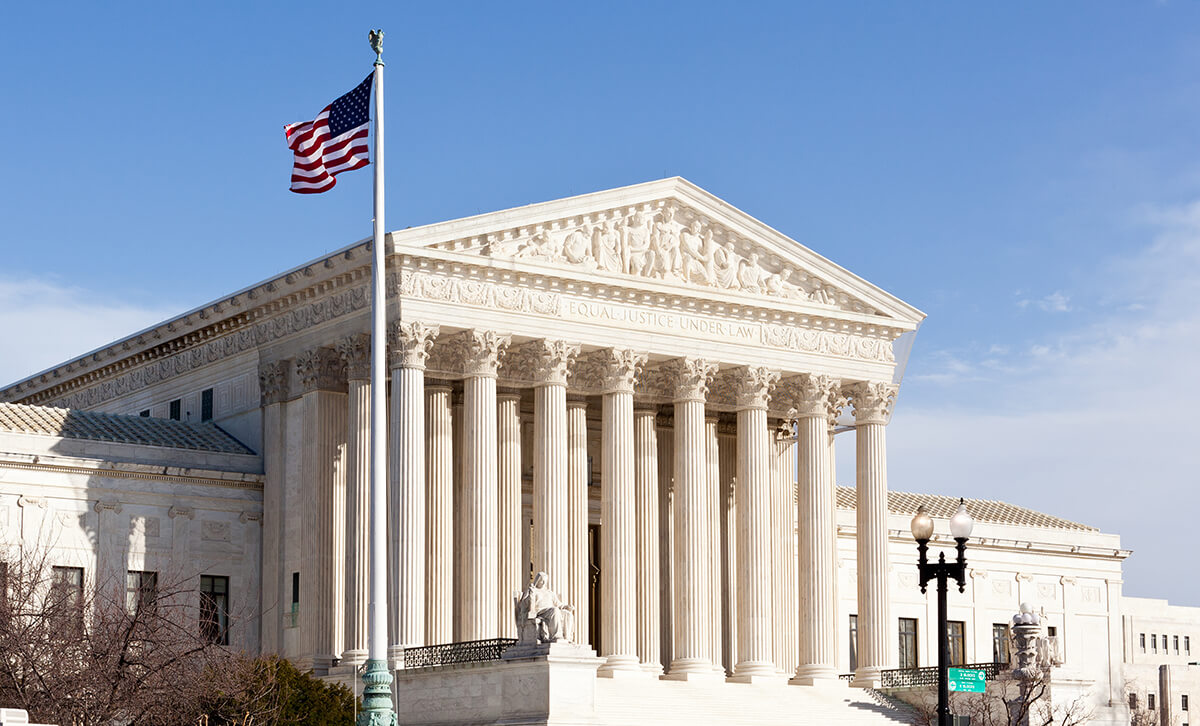
Key Points
- Religious exemption confirmed: The U.S. Supreme Court ruled that Catholic Charities Bureau (CCB), a nonprofit controlled by the Diocese of Superior, may qualify for exemption from Wisconsin’s unemployment system even though it serves the broader public and does not proselytize.
- Unemployment liability impact: The decision ensures faith-based nonprofits have access to all three choices available under unemployment law: paying state unemployment insurance (SUI) taxes, reimbursing the state for benefits actually paid, or qualifying for a full exemption.
- First Amendment implications: The Court rejected Wisconsin’s approach, which required religious nonprofits to evangelize or serve only co-religionists in order to qualify for exemption. This type of theological test was held unconstitutional.
- Broader reach: Other church-controlled ministries, such as schools, hospitals, and shelters, may rely on this ruling to claim exemption without being told their services are ‘too secular.’
Background: What Does Exemption Mean?
Unemployment Insurance (UI) is a joint federal–state program funded by employer payroll taxes. In most states, nonprofits are given three basic options:
- Pay SUI taxes like for-profit employers.
- Reimburse the state for actual benefits paid to former employees (called ‘reimbursing’).
- Claim an exemption if the organization qualifies under federal or state rules. Churches and certain church-controlled entities are generally exempt.
Exemption means the nonprofit does not participate in the unemployment system at all. Employees of exempt organizations cannot collect unemployment benefits if laid off. For religious bodies, this exemption is rooted in both statute and the First Amendment.
What Catholic Charities Bureau Wanted
 Catholic Charities Bureau is part of the Diocese of Superior, Wisconsin. Its ministries include housing for seniors and people with disabilities, job training, and support for children and families. Motivated by Catholic teaching, it sought to participate in the Wisconsin Bishops’ Church Unemployment Pay Program (CUPP), a church-run plan designed for religious employers.
Catholic Charities Bureau is part of the Diocese of Superior, Wisconsin. Its ministries include housing for seniors and people with disabilities, job training, and support for children and families. Motivated by Catholic teaching, it sought to participate in the Wisconsin Bishops’ Church Unemployment Pay Program (CUPP), a church-run plan designed for religious employers.
CCB argued that it should be exempt from the Wisconsin unemployment system, just like parishes and diocesan offices.
Wisconsin’s Denial
Wisconsin’s Department of Workforce Development denied CCB’s request. The state argued that CCB’s activities were charitable and social service in nature, not ‘operated primarily for religious purposes.’ Because CCB did not proselytize or restrict services to Catholics, the state classified its work as secular.
The Wisconsin Supreme Court agreed. In a 2024 decision, the court said CCB was under diocesan control but still not eligible for exemption because its services did not involve worship or religious education.
The U.S. Supreme Court Reversal
On June 5, 2025, the U.S. Supreme Court unanimously reversed the Wisconsin ruling. Justice Sonia Sotomayor wrote that Wisconsin had violated the Free Exercise Clause and the Establishment Clause by favoring some styles of religious ministry over others.
The Court emphasized:
- Religious organizations need not evangelize to qualify as ‘operated primarily for religious purposes.’
- States cannot impose theological tests that disqualify service-oriented ministries.
- Denying exemption because services benefit the broader public is itself discriminatory.
The Court held that CCB, as a church-controlled nonprofit motivated by Catholic doctrine, may be exempt from Wisconsin’s unemployment system.
Why This Case Matters
This decision goes beyond one diocese in Wisconsin. It signals that courts must respect the structure and religious purpose of church-controlled nonprofits, even when their work looks like social service.
For nonprofit leaders, the case confirms:
- Exemption is real: Religious nonprofits can qualify if they are operated by or under the control of a church.
- Proselytizing is not required: Serving all people, regardless of faith, does not strip away religious purpose.
- Options remain open: Religious organizations can consider exemption, reimbursement, or tax-paying, depending on their needs.
Implications for Nonprofits and Ministries
Church leaders, dioceses, schools, and service providers now have clearer protection when seeking unemployment exemptions. This can mean significant savings, particularly for ministries that want to avoid tax obligations and operate within church-controlled unemployment plans.
Other practical implications:
- Ministries do not have to compromise their open-door approach to service.
- Religious hospitals, shelters, and schools may point to this ruling if challenged on their exempt status.
- State agencies will need to adjust how they interpret ‘operated primarily for religious purposes.’
Frequently Asked Questions
Q1. What was the central issue in this case?
Whether Catholic Charities Bureau, as a church-controlled nonprofit, could be exempt from Wisconsin’s unemployment system.
Q2. What does exemption mean in unemployment law?
Exemption means the employer does not participate in the system, does not pay UI taxes, and its employees are not eligible for UI benefits.
Q3. Does this ruling mean all religious nonprofits are exempt?
No. To qualify, the nonprofit must be controlled by or associated with a church and must operate with a religious purpose. The Court clarified that service-oriented missions still count as religious.
Q4. What if my nonprofit does not want to be exempt?
Organizations may instead choose to reimburse or to pay SUI taxes. Each approach carries different financial and compliance considerations.
Q5. Where can I read more?
What This Means for Your Ministry
The Supreme Court’s ruling underscores that faith-based nonprofits have choices in how they manage unemployment liability. Churches and their affiliated ministries can pursue exemption, reimbursement, or tax-paying, depending on what best supports their mission.
About Us
For more than 40 years, 501(c) Services has been a leader in offering solutions for unemployment costs, claims management, and HR support to nonprofit organizations. Two of our most popular programs are the 501(c) Agencies Trust and 501(c) HR Services. We understand the importance of compliance and accuracy and are committed to providing our clients with customized plans that fit their needs.
Contact us today to see if your organization could benefit from our services.
Are you already working with us and need assistance with an HR or unemployment issue? Contact us here.
The information contained in this article is not a substitute for legal advice or counsel and has been pulled from multiple sources.
(Images by Back Yard Production and Olegk1986)




